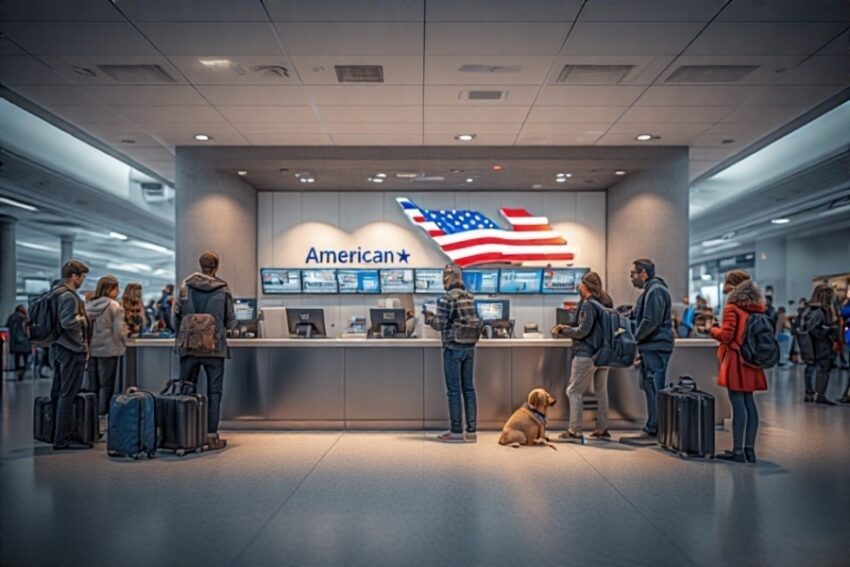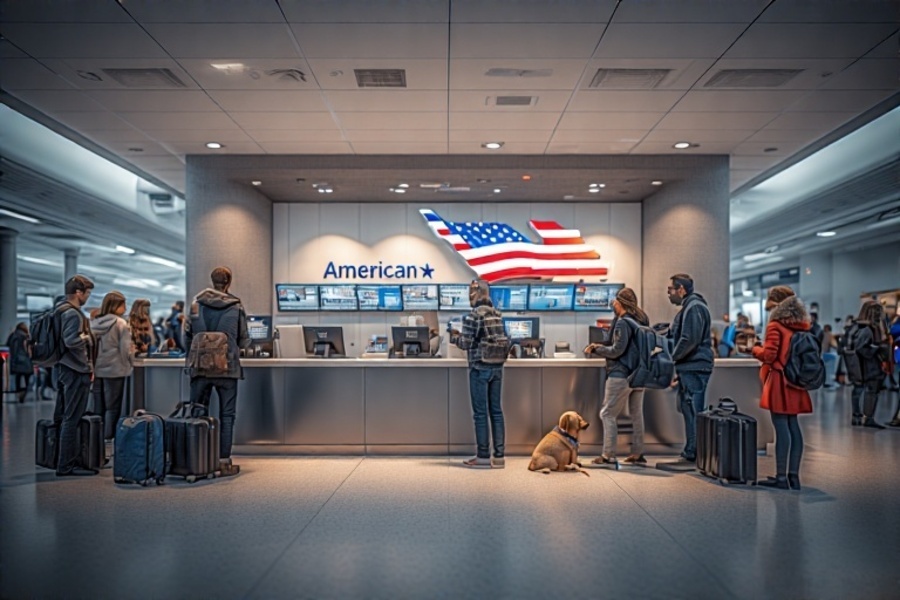Friday, July 25, 2025

American Airlines flies against the winds of AI price optimization while looking to improve service and operations. Using AI The airline, which is also using the Hub Efficiency Analytics Tool (HEAT), aspires to simplify, and enhance the customer experience when dealing with service disruptions. With a focus on transparency and customer confidence, American Airlines is enabling AI to never be used to trap travelers, but to make smooth, reliable service possible. Here’s why their rise represents the future of air travel.
Strategic AI Investments for Streamlining Operations
American Airlines continues to invest in AI with the goal of improving its operational processes. One of its significant projects is the Hub Efficiency Analytics Tool (HEAT), an internally developed AI system designed to optimize flight schedules and enhance recovery efforts during severe weather events. This tool dynamically adjusts flight plans when weather disruptions affect major hubs, enabling the airline to rapidly rebuild operations and minimize delays for passengers. The use of AI in this capacity focuses on improving the airline’s internal processes, enhancing its ability to respond to operational challenges efficiently.
By relying on AI for operational improvements, American Airlines is taking steps to ensure that its team functions smoothly under stressful conditions, ultimately benefiting passengers with more reliable service during disruptions. The airline is particularly focused on ensuring that its AI initiatives serve as tools for increasing efficiency and reducing customer inconvenience, not for increasing costs or confusing passengers.
American Airlines has been transparent in asserting that its AI initiatives are aimed at improving both operational workflows and customer experiences. While some airlines are exploring AI for revenue-generating purposes, the airline is committed to avoiding manipulative tactics, ensuring that customers trust the services it offers. The airline is keen to emphasize that AI will not be used to mislead or deceive consumers.
The Growing Use of AI in Airline Pricing Under Scrutiny
While American Airlines is focused on improving its operations with AI, other airlines are turning to AI-driven pricing strategies. These strategies use AI to tailor fares based on a variety of factors, including customer profiles and market conditions. One airline, for example, has set a goal to expand the percentage of its domestic network using AI-driven pricing from 3% to 20% by the end of the year. While these moves are seen as an attempt to optimize pricing and offer personalized deals, they have raised concerns regarding fairness and transparency in how prices are set for consumers.
The potential for AI to set personalized fares on a per-customer basis has led to a growing debate over whether such practices could lead to price discrimination. There are concerns that AI could be used to charge different prices to different customers for the same service, potentially leading to unfair practices. This has drawn the attention of government regulators, who are now investigating how airlines use AI in pricing and whether such strategies could harm consumers.
Some airlines argue that the focus of AI in pricing is to offer the best deals to customers at the right time, making the process more efficient and targeted. However, consumer rights advocates caution that such technology could be misused to exploit customers, particularly if it results in higher fares for some passengers based on their behavior or willingness to pay.
Generative AI and Revenue Optimization Raises Ethical Concerns
The introduction of generative AI into the airline industry has also created opportunities for revenue growth, with several airlines testing AI-driven solutions for pricing optimization. One such solution, developed by a tech startup, claims that its generative AI tool can boost airline revenues by up to 9%. This tool uses publicly available data and market trends to optimize pricing, without collecting any private consumer data. Proponents of this technology argue that it offers a more ethical and transparent way to optimize pricing while avoiding potential privacy concerns.
Despite the potential benefits, the use of generative AI in pricing continues to raise ethical concerns. Critics argue that while the technology may optimize revenue, it could also contribute to the erosion of pricing transparency and fairness. As more airlines begin testing generative AI-driven pricing engines, industry watchers are calling for clear guidelines and regulations to ensure that AI is used responsibly and ethically in the airline sector.
American Airlines has made it clear that it is committed to maintaining customer trust as it continues to explore AI applications. The airline’s focus remains on improving efficiency, particularly in areas such as flight scheduling and customer service, rather than using AI to manipulate prices or create unfair pricing models.
A Commitment to Trust and Transparency in AI Use
American Airlines doesn’t waver from its stance on A.I.; that the technology should make operations and customer service better, not to mention fair and transparent. The airline insists it won’t be using AI for misleading customers, or for their predatorial pricing schemes as well. As AI technology becomes more commonly employed by airlines, American Airlines wants to ensure it is being used for good — to improve the customer experience — and not to unfairly drive up the cost of flights and line the airline’s wallet, according to an article in The Verge by journalist Nick Statt.
In this fast-paced world of AI-enablement, American is leading the charge to operational efficiency leaving technology advancements to the prone of benefit both the airline and our customers — and consistently in a manner that breeds trust, rather challenging it.


